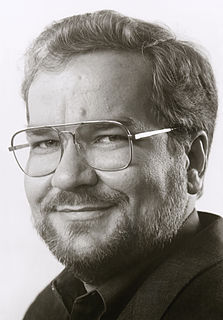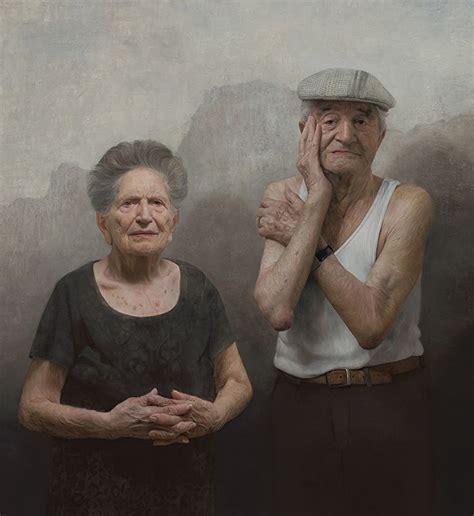A Quote by Rick Smolan
The goal of 'Data Detectives' is to spark the imagination of students around the globe by making them think about new technologies that will impact humanity in ways similar to language and art.
Related Quotes
MapReduce has become the assembly language for big data processing, and SnapReduce employs sophisticated techniques to compile SnapLogic data integration pipelines into this new big data target language. Applying everything we know about the two worlds of integration and Hadoop, we built our technology to directly fit MapReduce, making the process of connectivity and large scale data integration seamless and simple.
There will soon be streams of data coming from all manner of products - appliances, clothing, sporting goods, you name it. Wouldn't you rather live in a world where you can export the data from your son's football helmet to a new app that monitors force and impact against a cohort of high school players around the country?
Teaching is a huge part of what I do. I love to think about what I do out loud, and the best way to do this is to teach. I usually learn a lot from the students in my workshops, because we work to build the classes around a collaborative environment where everyone is working towards the same goal of learning how to observe and see the subject well, because everyone brings different approaches and experiences with them, the other students and myself learn new methods that we can add into what we do.
Unfortunately, we have a 50% unemployment rate among our urban youth of color. It's not about making green jobs more attractive. It's about making them more available. And that requires Congress passing legislation that will give a real break to the people who want to introduce new technologies to the American marketplace.
Much like teaching art to young art students age 10 to 15 or so on, you have to break it down into bite-sized pieces, essential components. You have to - you know, at this point I'm so used to operating within given assumptions about art. But when you're explaining art to art students or people who are new to this experience, you have to really go back to the fundamentals.
The failure of the first Barack Obama administration to really deliver on a new War on Poverty and a new language to explain these societal challenges in some ways provided the fuel that led to the Occupy Movement a few years later. And, while Occupy was a somewhat transitory phenomenon, many of the activist groups that emerged during this period are still out there, and still working on reshaping the political debate around taxes, around welfare, around government assistance to the poor, around debt relief for students, and so on.
It is just so satisfying to create work that is beyond the framework of language. I think for me that when I make art, I allow myself the opportunity to think with my hands as well. The thing about writing is that you're constantly grappling with every word, because it is removed from the consideration of words in many ways, it can just allow you to move through the art. I discover things in the act of making.
Disruptive technology is a theory. It says this will happen and this is why; it's a statement of cause and effect. In our teaching we have so exalted the virtues of data-driven decision making that in many ways we condemn managers only to be able to take action after the data is clear and the game is over. In many ways a good theory is more accurate than data. It allows you to see into the future more clearly.
The internet has extended the possibility of making art to more people, and particularly of enabling it to be seen by others. I am sure the internet is having a profound impact on art, particularly those who have grown up with it, but making good art will remain as difficult (and as easy) as it ever was. Having a lasting impact may become more not less difficult.
When people talk to me about the digital divide, I think of it not so much about who has access to what technology as about who knows how to create and express themselves in the new language of the screen. If students aren't taught the language of sound and images, shouldn't they be considered as illiterate as if they left college without being able to read and write?
What happened in the early days of Disney is that Walt Disney used all of the new technologies as they came out. When matting came out, they adopted it. They adopted sound and color and xerography. Walt did that. And then, when he died, people began to think that this is just about making films, so they stopped bringing in new technologies.




































